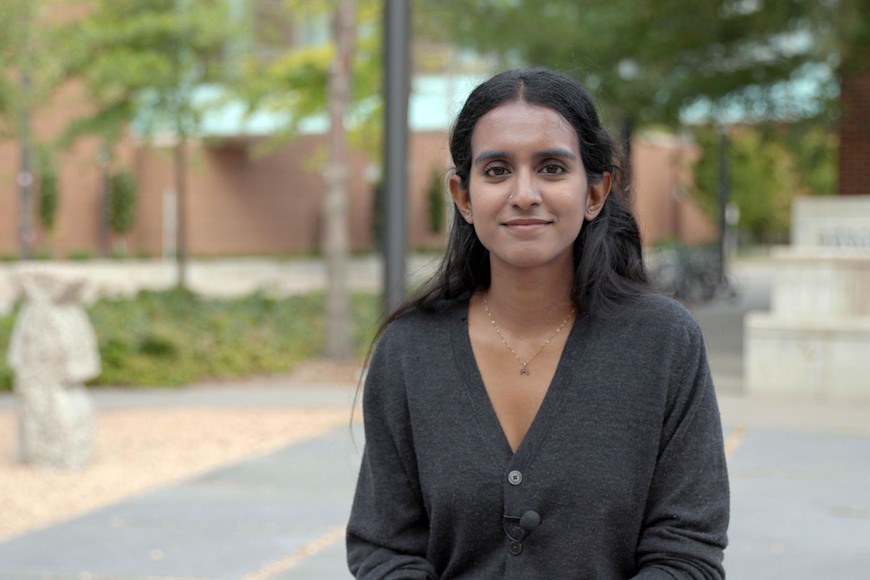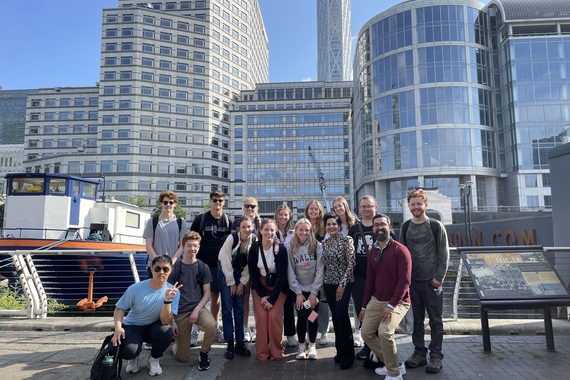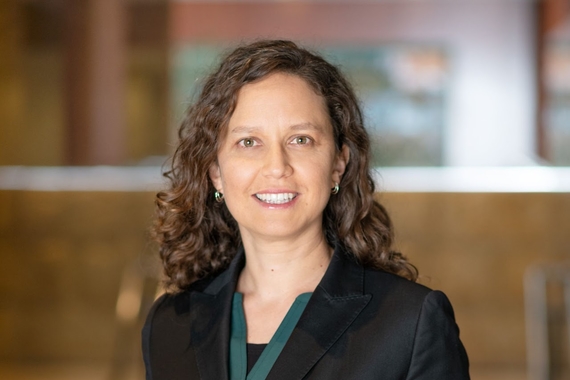Tackling Environmental Issues with Economics: Q&A with Meghana Bhaskar
Meghana Bhaskar, a third-year economics PhD, is interested in the field of environmental economics. While taxation is one of the most unpopular policies, Bhaskar’s research shows that this fiscal tool can significantly reduce emissions in the livestock consumption industry. This unexpected finding not only showcases the complexities of global climate solutions but also highlights how economics research can drive real-world change in unexpected ways.
How did you come to study economics?
I actually did not start out with economics. In undergrad, my major was electrical engineering. I did it mainly because I didn't know what I wanted to do. I was really good at math, thought I liked physics, and it seemed like a good direction to go into an applied electrical engineering field.
Over time I realized I was really interested in finance and macroeconomics, so I did my master's in economics… and I seemed to enjoy it a lot.
When I came to economics it was because I was interested in finance [but] I didn't really want to be in finance. I wanted to really think about things, write papers, and research. Then when I came [to University of Minnesota] and took economics classes, I realized that economics is a very broad area.
There's a lot of things you can do in the field, and what inspires me most now is to think about people, their lives and how different issues and different policies affect them, and to try to make things a little bit better by doing research.
What is unique about studying economics at the University of Minnesota?
The University of Minnesota is very unique in that they have a special relationship with the Federal Reserve Bank of Minneapolis. This is not true for any other program that I know of.
They have a tie-up with the Federal Reserve Bank of Minneapolis, which means that a lot of the PhD students here have the opportunity to work for any of the economists at the Federal Reserve Bank as part of their appointment. So instead of being a teaching assistant (TA) or an instructor, you can choose to be a research assistant for any of the economists there.
I think what's most useful about the economics department is its alumni network and the upper-year students in the graduate program. There's an environment where you're welcome to reach out to anyone, talk to any of the professors, talk to anyone in the department, and reach out to [the college] if you need to. You're welcome to reach out to anyone and people get back to you as quickly as possible, so you have resources you can access and that's been most useful.
[For example,] I [had] an email from someone who graduated three years ago telling me, "Hey, I know you don't know me, but I'm interested in electric vehicles too. And I met your friend who's in the same workshop as you, and I thought I'd just put it out there. I know you don't want unsolicited advice, but here it is if you need me." And I just got that email this morning, so that's wonderful. [Editor’s note: Bhaskar also considered researching pollution levels in India when people use electric vehicles vs. hybrid vehicles.]
What are you currently researching?
I'm interested in looking at the effect of taxing livestock consumption in the US. Will taxing higher carbon footprint foods lead to significant emissions reduction? I find that taxes can actually be quite effective and they elicit a much bigger emissions reduction compared to previous studies in this area. The difference mainly arises because I estimate demand at a much more granular level than previous studies have.
What comes next?
I would ideally like to be working as a researcher in environmental economics, but I'm not necessarily tied to that field. I'm also interested in a bunch of other things. They haven't come to fruition yet, but I'm open to anything as long as I get to do research.
By Autumn Viker
This story was written by an undergraduate student in CLA.



